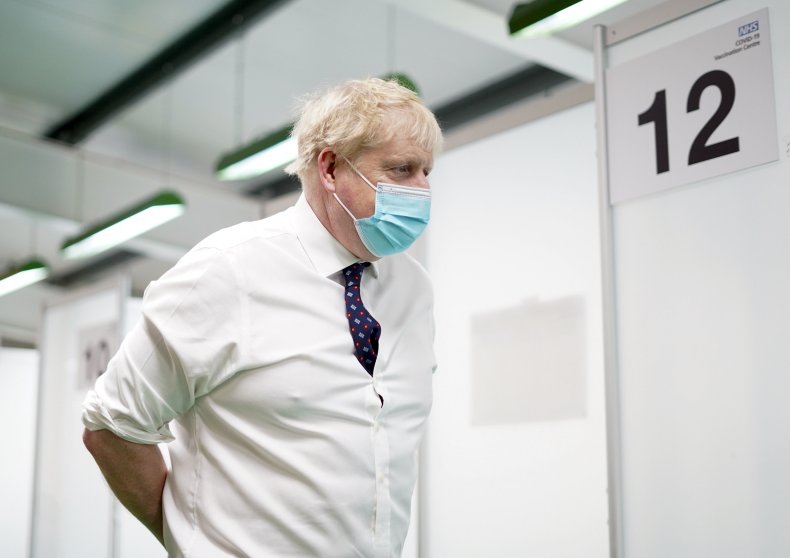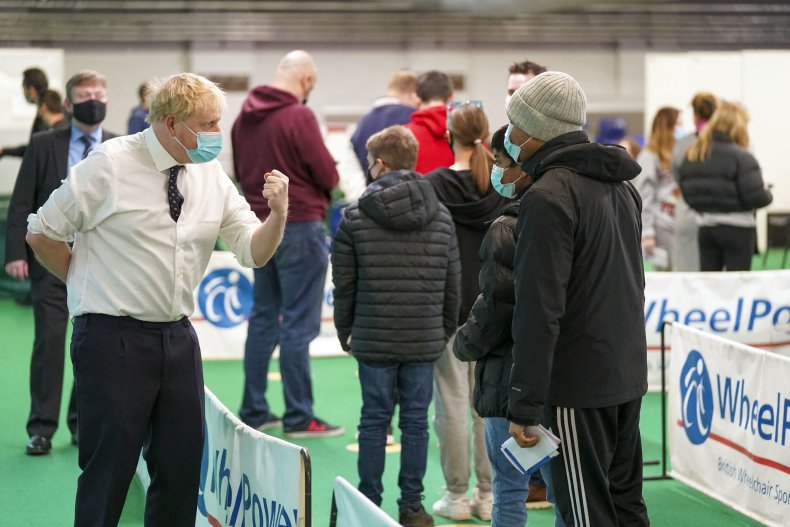The United Kingdom will not add any new restrictions to help curb the spread of COVID-19 and will instead continue its massive vaccination campaign.
British Prime Minister Boris Johnson revealed the decision during a news conference on Monday. During the conference, he said that the Omicron coronavirus variant continues to sweep the nation. He said that the NHS, the country's medical system, will continue to be under strain in the coming weeks.
"I think we've got to recognize that the pressure on our NHS, on our hospitals, is going to be considerable in the course of the next couple of weeks, and maybe more," Johnson told reporters.
Despite this strain, however, no new restrictions will be enforced throughout the country. Instead, Johnson urged people to continue following the current Plan B protocols, which include wearing face coverings in public places and providing proof of vaccination or a negative COVID-19 test when asked. He also stressed the importance of receiving booster shots to combat the spread of the virus.
"I think the way forward for the country as a whole is to continue with the path that we're on. We'll will keep everything under review," said Johnson. "The mixture of things that we're doing at the moment is, I think, the right one."

The highly transmissible Omicron variant has sent Britain's daily new caseload soaring over Christmas and the New Year, with 137,583 infections and 73 deaths reported for England and Wales only on Sunday, with numbers for Scotland and Northern Ireland to be announced after the holiday weekend.
Johnson was speaking after The Sunday Times newspaper reported that a group of hospitals in the eastern county of Lincolnshire had declared a "critical incident" due to "extreme and unprecedented" staff shortages.
Chris Hopson, chief executive of NHS Providers, which represents health trusts that run hospitals around the country, told the BBC: "We're seeing increasing staff absences, and that's coming on top of a very significant amount of wider pressure."
And Matthew Taylor, chief executive of the NHS Confederation that represents 1.5 million health workers, said much of the health service is in "a state of crisis" that's exacerbated by a high demand for services and staff absences.
"Some hospitals are making urgent calls to exhausted staff to give up rest days and leave to enable them to sustain core services. Many more hospitals are having to ban visitors to try to reduce the spread of infection," he said.
Earlier, Education Secretary Nadhim Zahawi told the BBC that data from London, which has seen surging infection rates in recent weeks, appear to show a "plateauing" of rates, but he added, "we are seeing leakage into the over-50s in terms of infections, and it's generally the over-50s who end up with severe infection and hospitalization."
The Associated Press contributed to this report.


Post a Comment